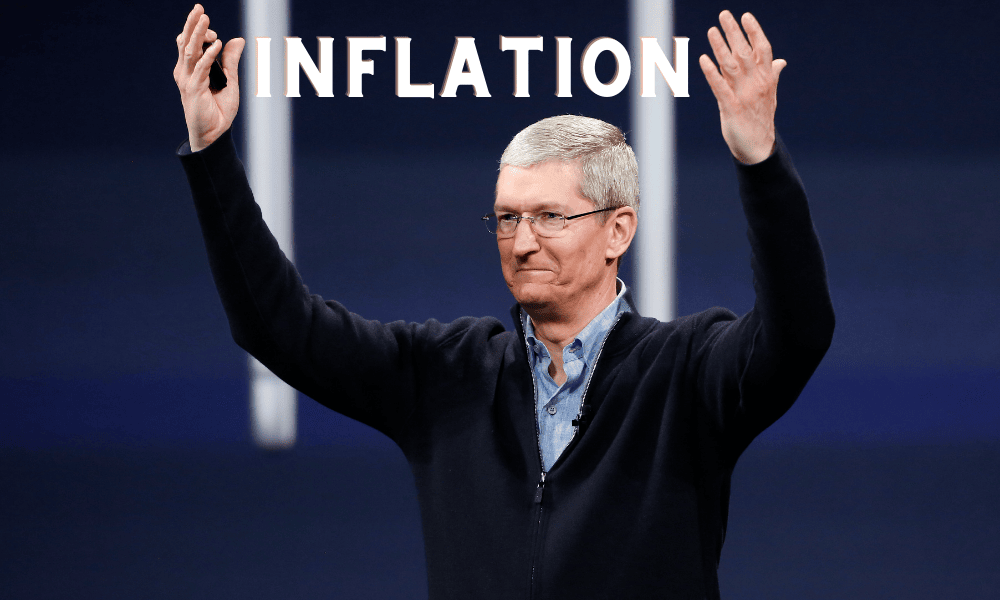
Apple CEO Tim Cook said Thursday in an interview with CNBC's Julia Boorstin that,
The company is facing inflationary pressures as the company reported nearly $124 billion in revenue in the December quarter.
Key overviews at a glance:
“I think everyone sees inflationary pressures. There are no two ways to do this. high inflation and whether to raise interest rates."
The consumer price index, the metric that measures price increases in a basket of consumer goods, rose 7% year over year in December, the fastest annual pace in almost 40 years.
During an earnings call with analysts, Cook explained how inflation is affecting Apple's business and gave an example of shipping costs.
"We look at inflation and it's factored into our gross margin and operating expenses, which [Apple CFO] Luca [Maestri] discussed with you earlier," Cook said.
“Logistics, as I mentioned on a previous call, is very high in terms of the cost of moving things. Cook said he expects the cost increase to be temporary.
| Related: Sustaining Inflation Wage Without Influential High Is Difficult! |
"I hope at least some of this is temporary, but the world has changed and we'll see," Cook said. Cook didn't rule out the possibility of price hikes in his CNBC interview or on Apple's conference call.
Cook also said he expects supply chain constraints, which are contributing to inflation, to ease for Apple in the coming months.
In September, Nikkei Asia reported that chip prices at TSMC, Apple's chipmaker, may decide to pass the increases on to customers. of processors that TSMC manufactures.
Apple will typically raise costs once products are released, though it typically does this in response to regional economic conditions.
For example, last year, Apple raised prices at its online Apple store in Turkey because the lira fell in price, and inflation pressure within the country hit a two-decade high.
However, Apple sometimes raises prices compared to last year’s models when introducing new iPhones and alternative devices in the fall.